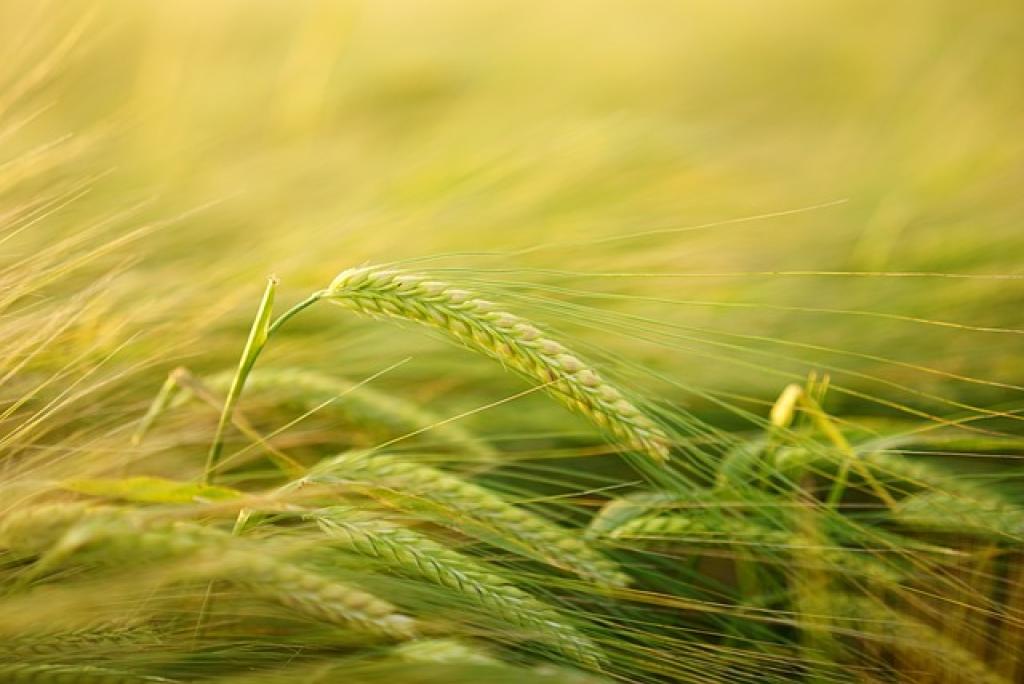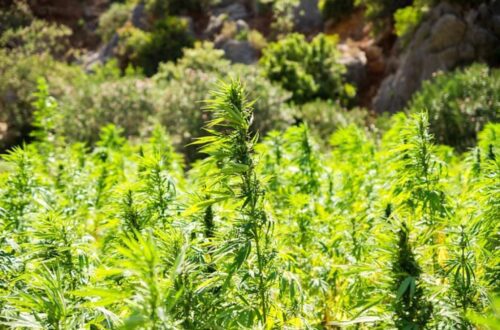Thinking of diving into the world of hemp cultivation? Whether you’re an aspiring farmer or a seasoned agriculturalist, understanding the legal framework is pivotal to success. The laws around hemp can be a bit of a maze, but don’t worry – we’ve got you covered.
From licensing requirements to zoning laws and everything in between, knowing the legal landscape will help you navigate this burgeoning industry smoothly. Ignorance isn’t bliss when it comes to hemp regulations; it could cost you time, money, and your entire operation.
We’ll break down federal, state, and local regulations, so you know exactly what steps to take and what pitfalls to avoid. Ready to sow the seeds of knowledge and ensure your hemp journey is legally sound? Let’s get started!
Understanding Hemp Cultivation Laws
Hemp cultivation laws are diverse and dynamic, reflecting the changing attitudes towards this versatile plant. The 2018 Farm Bill was a game-changer, federally legalizing the production of hemp, but the story doesn’t end there. Each state has its own set of regulations governing hemp farming.
Federal Regulations
At the federal level, the definition of hemp is crucial: it’s cannabis containing no more than 0.3% THC. Exceed this threshold, and your crop could be classified as marijuana, leading to serious legal issues. Compliance with USDA guidelines, including rigorous testing and reporting, is essential.
State-Specific Rules
Each state approaches hemp cultivation differently. Some require extensive background checks, while others may demand specific licenses or permits. It’s vital to research your state’s requirements and stay updated, as regulations can change rapidly.
Local zoning laws also play a significant role. Certain areas may restrict where hemp can be grown, so always check with local authorities before planting. Ignoring these rules can lead to hefty fines or even the shutdown of your operation.
Understanding these layers of legality is your first step toward successful hemp cultivation. Stay informed, stay compliant, and you’re well on your way to a flourishing hemp farm!
Selecting the Right Hemp Varieties
Choosing the right hemp variety is crucial for a successful harvest. Different strains cater to different needs, whether it’s for fiber, seeds, or CBD extraction. Your choice will directly impact your crop’s yield and quality.
Firstly, know your end goal. If you aim to produce CBD, select a variety bred specifically for high CBD content. These strains usually maintain THC levels within the legal limit but offer a rich CBD yield. On the other hand, if your focus is on fiber production, you’ll want varieties that grow tall and have robust stalks.
Climate is another vital consideration. Some hemp varieties thrive in cooler climates, while others flourish in warmer regions. Research which strains are best suited for your local weather conditions. Growers in colder areas might opt for quick-maturing strains to avoid early frosts.
Soil type also plays a role. Some hemp varieties are more tolerant of different soil conditions, whether they’re sandy, loamy, or clay. Testing your soil and selecting a strain that complements it can significantly boost your chances of success.
Don’t forget to factor in pest and disease resistance. Some hemp varieties are bred to resist common pests and diseases, reducing the need for chemical interventions. This not only lowers costs but also promotes a healthier, more sustainable crop.
Ultimately, selecting the right hemp varieties is about aligning your growing conditions and goals with the strengths of specific strains. It takes a little research and planning, but doing so will set the foundation for a bountiful and rewarding hemp harvest.
Permitting and Licensing Requirements
Before you can start growing hemp, you’ll need to navigate various permitting and licensing requirements. These regulations can vary widely depending on where you live, so doing your homework is crucial.
First and foremost, check your local laws. Some regions have very specific rules about who can grow hemp, how much you can cultivate, and what types you can plant. Knowing these details will save you from headaches down the road.
Next, gather all necessary documentation. You might need to provide detailed information about your farming operation, including your intended use for the hemp, the size of your cultivation area, and sometimes even a criminal background check.
Submitting your application is the next step. This usually involves filling out forms, paying fees, and possibly attending an information session or training. Make sure to keep copies of everything you submit, just in case something gets lost in the shuffle.
Once approved, you’ll receive your hemp grower’s license. Make sure to understand the reporting and compliance requirements that come with it. Many areas require regular updates on your cultivation activities and periodic testing to ensure THC levels remain within legal limits.
Also, be aware of the timelines involved. The approval process can take weeks or even months, so plan accordingly. You don’t want to miss your planting window because of unforeseen delays.
Remember, being diligent about permitting and licensing isn’t just about staying within the law. It’s also about ensuring your operation runs smoothly and setting yourself up for long-term success in the hemp industry.
Compliance with THC Limits
One key aspect of growing hemp legally is ensuring compliance with THC limits. THC, or tetrahydrocannabinol, is the compound responsible for the psychoactive effects in cannabis. For your hemp to be considered legal, it must contain no more than 0.3% THC.
Regular Testing
Regular testing of your hemp plants is essential to stay within legal THC limits. Many regions require you to test your crops at various stages of growth. These tests help monitor THC levels and ensure they don’t exceed the legal threshold. Failing to keep up with testing can result in hefty fines or even require you to destroy your crop.
Understanding Your Strain
Different hemp strains have different THC levels. It’s crucial to choose a strain known for its low THC content. Research and select a reputable seed supplier to ensure you’re starting with a compliant strain. This initial choice can make a big difference in staying within the legal limits.
Effective monitoring is crucial. Keep detailed records of all tests and results. This data is not only useful for your peace of mind but may also be required during inspections by regulatory bodies. Having an organized and transparent system will make these inspections smoother.
Another important tip is to stay informed about any changes in laws and regulations. Hemp legislation can evolve, and staying current can help you anticipate and adapt to any stricter rules or adjustments to THC limits.
Environmental Regulations for Hemp Farms
Growing hemp isn’t just about following THC limits; it’s also about adhering to various environmental regulations. These rules aim to protect the soil, water, and overall ecosystem around your farm.
Soil Conservation
One of the critical environmental regulations involves soil conservation. Farmers are encouraged, and sometimes required, to adopt practices that prevent soil erosion. Techniques like crop rotation, cover cropping, and reduced tillage can help keep the soil healthy and fertile.
Water usage is another major consideration. Depending on your location, there may be strict guidelines on how much water you can use and how you obtain it. Some areas mandate the use of efficient irrigation systems to minimize water waste. Keeping tabs on local water regulations can help you avoid penalties and contribute to sustainable farming.
Pesticides and Herbicides
The use of pesticides and herbicides in hemp farming is also regulated. Many regions have strict rules about what kinds of chemicals can be used and in what quantities. Always opt for approved substances and follow guidelines to the letter. Going organic can be a great way to ensure compliance and appeal to eco-conscious consumers.
Waste management is another crucial area. Proper disposal of plant waste, chemical containers, and other farm-related debris is mandatory. Composting and recycling whenever possible can help reduce your environmental footprint and keep you compliant with local regulations.
Lastly, be mindful of air quality regulations. Sometimes, farming activities can contribute to air pollution, especially during planting and harvesting. Dust control measures, such as planting windbreaks or using water sprays, can help minimize your farm’s impact on local air quality.
In a nutshell, staying compliant with environmental regulations is essential for the long-term success of your hemp farm. From soil conservation to waste management, following these guidelines not only keeps you out of trouble but also promotes a sustainable farming practice that benefits everyone.

Insurance and Liability Considerations
Starting a hemp farm involves more than just planting seeds and watching them grow. It’s crucial to think about insurance and liability to protect your investment.
First, consider crop insurance. Like any agricultural venture, hemp farming is subject to risks like bad weather, pests, and disease. A solid crop insurance policy can help mitigate financial losses in case something goes wrong. Make sure the policy covers the specific needs of hemp farming, including newly emerging risks that are unique to this crop.
Liability insurance is another must-have. This type of insurance can protect you against claims resulting from injuries or damages that occur on your farm. Whether it’s a farmhand getting hurt or a visitor tripping over equipment, having liability coverage ensures you’re not shouldering the entire financial burden.
You should also think about product liability if you’re planning to process hemp into products like CBD oil or textiles. If someone claims that your product caused harm or didn’t work as advertised, product liability insurance can cover legal fees and potential settlements. This can be especially important as the hemp market grows and consumer scrutiny increases.
Don’t forget about property insurance. This will cover your farming equipment, storage facilities, and even your crops against risks like fire, theft, or natural disasters. The right policy can provide peace of mind and help you quickly recover if the unexpected happens.
Lastly, it’s a smart move to consult with an insurance agent who specializes in agricultural or hemp-related policies. They’ll be able to guide you through the options and help tailor a package that fits your specific needs.
Importance of Record-Keeping in Hemp Cultivation
Keeping meticulous records is a cornerstone of successful hemp cultivation. It starts with tracking your seeds and continues through every stage of growth.
First, document your seed purchases. This includes the variety, source, and any certifications. This data is essential for compliance with legal regulations and can also help you identify which seed strains perform best under your specific conditions.
Recording planting dates and locations on your farm is also crucial. This information allows you to monitor the growth cycle and make informed decisions about harvesting times. Plus, it aids in identifying any patterns that may affect future crops.
Growth conditions—like soil quality, moisture levels, and weather patterns—should be logged regularly. These records can help you troubleshoot issues and improve your farming techniques over time. For instance, noting how certain weather conditions impacted your yield can guide you in better preparing for future seasons.
Don’t forget about pest and disease management. Documenting any issues and how you addressed them provides invaluable data that can help you and other hemp farmers. This record can reveal trends and effective treatment methods, which is especially useful as regulations and environmental factors evolve.
Harvest details, such as yield weight and quality, are equally important. This information not only helps in assessing the season’s success but is also critical when meeting regulatory standards. Accurate records can be a lifesaver if you need to produce documentation for audits or certifications.
Financial records related to your hemp farm are indispensable. Keep track of all expenses and income, from purchasing seeds to selling your final product. These records can help you manage your budget, make financial forecasts, and even secure loans or investments.
Finally, having a robust record-keeping system can save you time and headaches when dealing with compliance and legal requirements. The hemp industry is highly regulated, and having well-organized records ensures you can quickly provide any necessary information to regulatory bodies.
In essence, good record-keeping is not just a bureaucratic chore—it’s a strategic tool that can boost the efficiency and profitability of your hemp farming operation.
The Bottom Line: Legal Compliance Equals Sustainable Hemp Farming
Bringing it all together, legal compliance plays a fundamental role in sustainable hemp farming. By adhering to regulations, you not only avoid legal trouble but also position your farm for long-term success.
First and foremost, compliance ensures that you’re growing high-quality hemp that meets industry standards. This creates trust and credibility with buyers, which is essential for maintaining and expanding your market.
Furthermore, staying on the right side of the law allows you to focus on improving your cultivation practices. Instead of worrying about potential legal issues, you can invest your energy into optimizing your growth techniques and increasing your yields.
Legal compliance also facilitates better resource management. By keeping accurate records and following regulations, you can make data-driven decisions that enhance efficiency and sustainability on your farm. This means less waste and more effective use of your resources, from seeds to soil and water.
Most importantly, compliance supports the broader hemp industry. When more farmers adhere to regulations, it strengthens the entire supply chain and contributes to the industry’s growth and innovation. This collective effort ensures a stable and sustainable future for hemp cultivation.
In short, legal compliance isn’t just a checkbox; it’s a vital strategy for building a resilient and prosperous hemp farming operation. By staying informed and diligent about the laws and regulations governing hemp cultivation, you’re not just protecting your farm—you’re contributing to a healthier, more sustainable industry.






